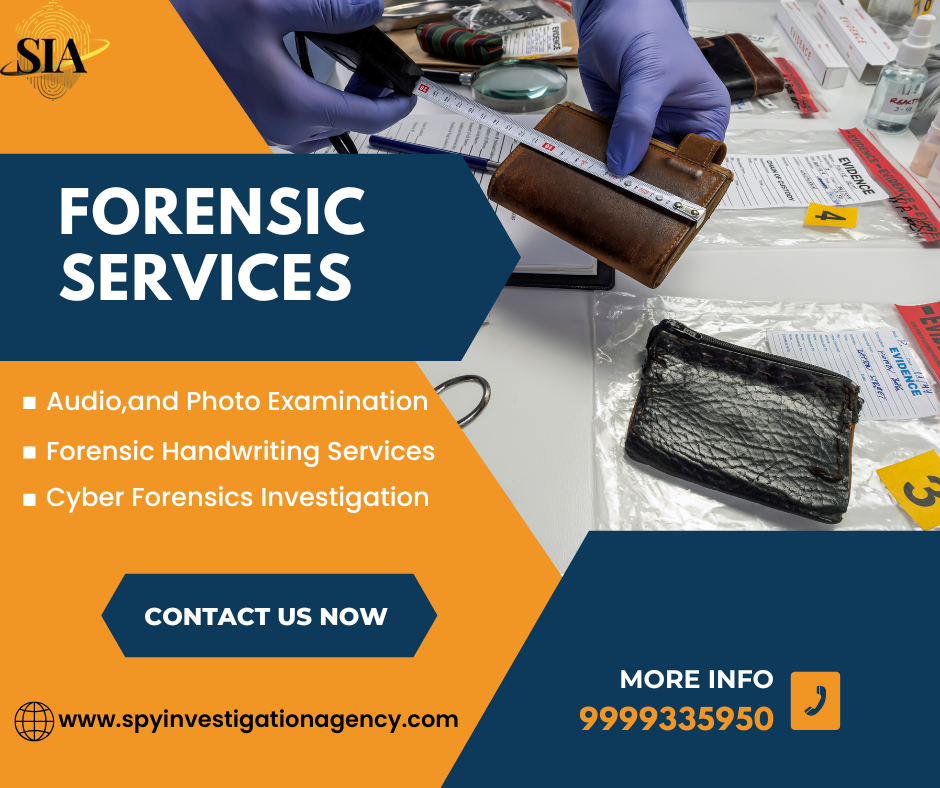Uncovering the Truth: The Essential Role of Forensic Services in Modern Justice

In an age where truth can be elusive and narratives can be manipulated, forensic services stand as one of society’s most powerful tools for revealing facts. Whether it’s solving cold cases, identifying victims, or uncovering fraud, forensic science bridges the gap between mystery and clarity.
But what exactly are the requirements of forensic services in helping people discover the truth, and why are they more important than ever?
1. Scientific Accuracy and Integrity
For forensic services to be reliable, they must be built on scientific accuracy and integrity. This includes adhering to standardized procedures, using validated techniques, and maintaining the chain of custody for all evidence.
Instance 1: In the Innocence Project, over 375 wrongful convictions have been overturned in the United States thanks to DNA evidence. These cases highlight the necessity for meticulous and ethical forensic practices that can stand up to judicial scrutiny.
2. Timely and Accessible Services
Justice delayed is often justice denied. Forensic services must not only be accurate but also timely. Delays in processing evidence can mean that perpetrators remain free while victims continue to suffer.
Instance 2: In the investigation of the Golden State Killer, it was the rapid advancements in DNA and genealogy analysis, coupled with prompt forensic work, that led to the arrest of Joseph James DeAngelo after decades of unsolved crimes.
3. Multidisciplinary Expertise
Modern forensic investigations require a blend of disciplines — from pathology and toxicology to digital forensics and cyber analysis. This holistic approach ensures a comprehensive understanding of the evidence.
Instance 3: In the case of George Floyd’s death, forensic pathology played a key role in determining the cause of death and was critical in the ensuing trial. It demonstrated how forensic findings can influence both public opinion and judicial outcomes.
4. Public Trust and Transparency
For forensic services to effectively serve the public, they must be trusted. This means transparent methodologies, open reporting practices, and accountability.
Instance 4: The 2009 NAS Report on Forensic Science in the U.S. criticized various forensic disciplines for lacking scientific backing and pushed for reforms, improving standards, and restoring public trust in forensic analyses.
5. Technology and Innovation
As crime becomes more sophisticated, so must our methods for investigating it. Investing in new forensic technologies like AI, machine learning, and enhanced imaging can vastly improve evidence analysis.
Instance 5: In the recent use of Facial Recognition Technology by the FBI to identify suspects during high-profile events, forensic innovation proved pivotal in aiding rapid identification while also sparking important conversations about privacy and ethics.
Conclusion
Forensic services are not just tools for the courtroom — they are lifelines for truth seekers. Whether it’s exonerating the innocent or convicting the guilty, these services uphold the principles of justice and provide closure for victims and their families. As we move forward, it’s essential to continue investing in and improving forensic capabilities to ensure truth remains within reach for all.

- Questions and Answers
- Opinion
- Motivational and Inspiring Story
- Technology
- Live and Let live
- Focus
- Geopolitics
- Military-Arms/Equipment
- Security
- Economy
- Beasts of Nations
- Machine Tools-The “Mother Industry”
- Art
- Causes
- Crafts
- Dance
- Drinks
- Film/Movie
- Fitness
- Food
- Games
- Gardening
- Health
- Home
- Literature
- Music
- Networking
- Other
- Party
- Religion
- Shopping
- Sports
- Theater
- Health and Wellness
- News
- Culture

